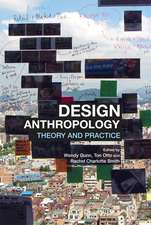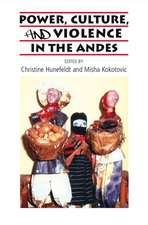The Problem of Money
Autor Bernhard Bierlichen Limba Engleză Hardback – 30 dec 2007
Preț: 749.15 lei
Preț vechi: 972.93 lei
-23% Nou
Puncte Express: 1124
Preț estimativ în valută:
143.35€ • 150.05$ • 119.31£
143.35€ • 150.05$ • 119.31£
Carte tipărită la comandă
Livrare economică 31 martie-14 aprilie
Preluare comenzi: 021 569.72.76
Specificații
ISBN-13: 9781845453510
ISBN-10: 1845453514
Pagini: 248
Dimensiuni: 152 x 229 x 16 mm
Greutate: 0.5 kg
Editura: BERGHAHN BOOKS INC
Locul publicării:United Kingdom
ISBN-10: 1845453514
Pagini: 248
Dimensiuni: 152 x 229 x 16 mm
Greutate: 0.5 kg
Editura: BERGHAHN BOOKS INC
Locul publicării:United Kingdom
Notă biografică
Bernhard Bierlich is a social and medical anthropologist. He is a member of the Danish Galathea 3 research expedition to inter alia West Africa and the West Indies. He is also affiliated with the Department of History at the University of Copenhagen and a Research Associate of the Wilberforce Institute for the study of Slavery and Emancipation, University of Hull.
Cuprins
List of Illustrations and Tables Foreword Preface Chapter 1. 'New' and Enduring Social and Economic Formations Continuity With the Past or 'Tradition' 1.1 The Land and the People 1.2 History, Politics and Religion 1.3 A Bilateral People? 1.4 The Local Scene Negotiating the Future and the Global Economy 1.5 Women in a Male-Oriented Society 1.6 Women, the Household and the Economy Chapter 2. Powers of the Person 2.1 The Individual and the Sway of Maternal Kinship 2.2 The Morality of Witchcraft and Medicines: The Contrast of Legitimacy and Gender 2.3 Enchanted Modernity and Witchcraft Chapter 3. Basic Concepts of Health and Illness 3.1 Illness: The Environment, the Living and the Dead 3.2 Common Illness 3.3 Ideas about the Body, Heart, Stomach and Common Symptoms 3.4 What is Illness? 3.5 Diagnosing Symptoms 3.6 Protection and the Occult Chapter 4. Medicines, Modernity and Commoditization 4.1 What is Medicine? 4.2 Tim 4.3 Images of Medicines 4.4 Classification of Medicines 4.5 Naming Medicines 4.6 Plants, Western Pharmaceuticals and Islamic Medicines 4.7 Treatment Choices: Magical and Non-Magical Medicines 4.8 Medicines, Modernity and Commoditization 4.9 A Note on the Provision of Medical Care in the Nineties Chapter 5. The Herbalist, Medical Pluralism and the Cultural Patterning of Illness 5.1 The Local Curer and His Plants 5.2 The Cultural Construction of Medical Knowledge: Becoming a Herbalist 5.3 Medical Pluralism in Dagomba 5.4 Biopower and the Cultural Patterning of Illness 5.5 Medical Knowledge and Medical Culture Chapter 6. Health, Wealth and Magic 6.1 Health, Wealth and Magic 6.2 The Modernity of Divination: The Power of Lotteries Chapter 7. A Woman's Lot: the Practical Realities of Care 7.1 The Dominant Voice: Men's Control of Local Medicines 7.2 The Structure of the Quest for Medicine: 'Begging for Medicine' 7.3 Ideology and Practice: Women, the Future and Decision Making 7.4 The Ethics of Care and the Female Strategy of Child Care Chapter 8. The Problem of Money: Money and Medicine 8.1 Introduction 8.2 Wealth, Health and the Community 8.3 Monetary and Non-Monetary Transactions in Dagomba 8.4 Contexts of Curing or the Problem of Money in Medicine 8.5 'Money Spoils the Medicine' 8.6 The (Im)morality of Medicines: Medicine-Sellers and Drug Peddlers 8.7 'Money Spoils the Medicine': Ideology and Practice 8.8 'Money Spoils the Medicine' Revisited 8.9 Healing and 'The Problem of Money' Conclusion Appendices 1. The Burden of Illness 2. Patterns of Medicine Use References Glossary Index
Recenzii
The beauty of this book lies in the rich anthropological data gathered and the deep analytical insight that the author brings to bear on the data - The reader is well-informed through the use of local concepts and idioms...In all, the book should serve as a springboard for further studies into the commoditisation of health in traditional societies in Africa. It also offers a wide range of topics for further study and theoretical approaches to interrogate field studies.A" * Anthropos "All in all, this book provides the reader with a fascinating insight into the intermingling of medicines, morality, gender, and inter-generational relationships in a society that is changing rapidly - in spite of the opposition by some of its most powerful members." * African Affairs [The author] is very good at conveying the practical realities that face Dagomba women trying to care for their families, and the differing expectations, priorities and options as Dagomba men see them - [He] gives an admirably insightful and sympathetic picture of these relationships, their common sense, their conflicts and hopes.A" * Gilbert Lewis, Cambridge University
















